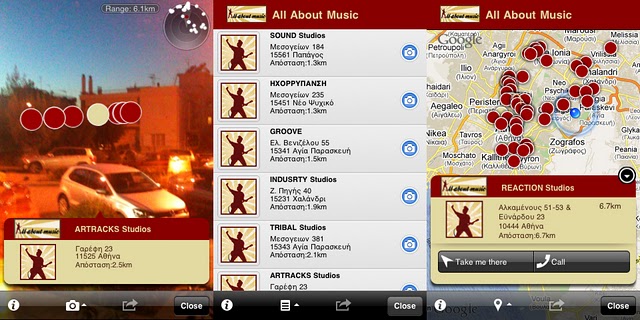During the Christmas break, we got a visit from some friends, along with their two kids (2 years and 5 months old respectively). What stood out during their visit, was how children discover, understand and use current technology. Here is how it all started…
During one of our endless discussions, next to the fireplace, about nothing and everything, the father reached for his iPod Touch and activated the device, entered the password and gave it to the older boy. The boy surfed through the applications, found one that had a baby picture and pressed the touch screen to enter a menu of five categories. The father asked the boy to look for ‘cars’. The boy selected the Automobile button and nine new pictures appeared. Then the father asked for the boy to look for trains. The boy navigated through the menu to the train picture, pressed it and started laughing when the train sound played through the device. Happy and excited he continued playing with his toys, leaving the iPod to his father.
After 5 minutes the device was locked and the kid wanted to play again. This time he reached the device by himself, entered the password that his father entered earlier – albeit an easy one – and launched the app again.

Child operating a Touchscreen (Image from University of Kent)
It was quite impressive how the 2-year old could handle the iPod, browsing through the pages and making the appropriate selections. However, we have seen that before, even with more complex interfaces. What was not so easily apparent is how young children are used to ‘touch-screens’, being fairly comfortable using them contrary to traditional keyboards.
As the father mentioned, a couple of months back he bought a cheap video camera which had the classic buttons for settings and usage. The boy wanted to play, so he opened the camera’s screen and started touching on it.
His disappointment was apparent and expressed vocally as the device did not respond when the boy touched the screen and he could not figure out another way of operating the device.
It occurred to me that when these kids start their own families it is possible that the technology that we use currently may be obsolete … maybe we will not be in a position to understand new devices easily. Kind of like Robert Gu at the begining of Vernon Vinge’s Rainbow’s End. Or the scene from “Back to the future” where two kids try to play an old-school video game and shoot Indians. Michael J. Fox comes in order to show them how to play, grabs the gun which had a cable attached to it and starts pressing the trigger. Disappointed, one of the kids turns to Michael J. Fox and asks: “You mean we have to use our hands ?”
Most of us have seen how things began and evolved regarding mobile phones or PCs. I got my first mobile phone at the age of 21 and if I go back in time I remember I was one of the few kids that had a PC at the age of 10. It was a very powerful machine with a V20 Processor and a 20 MB HDD. By today’s standards, not enough even for a cheap mobile phone…
New generations may take technology for-granted, and probably will not be able to fully appreciate the steps that led us to today’s technology. Whether it is necessary to understand these steps is a different matter.
And it came to us…
Here we are today talking about AR & VR in small “smart” devices and a dozen other concepts that kids will probably use from an early age. How will that affect their creativity and technological progress. Will it hinder it, or will it open new possibilities and allow creators thing in a different way than we are. We are hopping for the latter.




Follow Us!